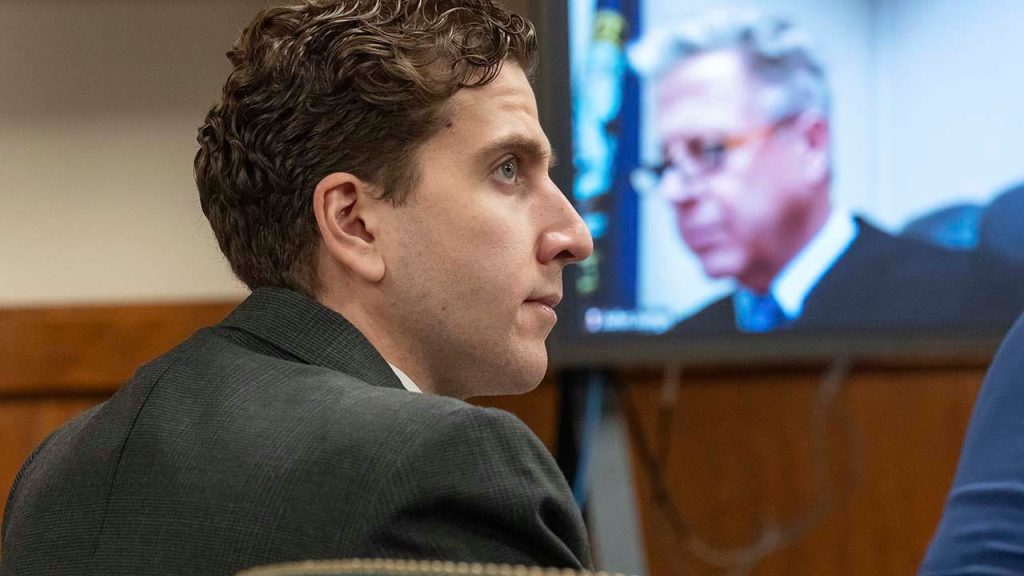Bryan Kohberger, accused of killing four University of Idaho students in 2022, was in court for a pre-trial hearing where his defense questioned Moscow Police Department detectives about mishandling phone records related to his alibi. Detective Lawrence Mowery testified regarding the investigation, admitting that he did not save files from Kohberger’s cellphone, but stated he could replicate the missing data. Prosecutors argued that Kohberger’s alibi, filed more than a year after the murders, was too vague. Kohberger’s defense team accused prosecutors of withholding evidence, including dashcam footage, cellphone tower data, and video and audio recordings related to the case. Investigators claim to have phone pings placing Kohberger near the house on the day of the murders, but his defense argued he was not in the vicinity at the time.
A probable cause affidavit connected to Kohberger’s arrest warrant claims that police found his DNA on a knife sheath under one of the victim’s bodies. His defense has suggested that the DNA may have been planted at the scene and have raised concerns about the state mishandling evidence. Investigators eventually confirmed a match with a DNA sample using distant relatives to connect Kohberger to the crime. Prosecutors also criticized Kohberger’s vague alibi of driving around looking at “the moon and the stars,” arguing that he had not provided any new information beyond this. They allege that Kohberger, masked, entered a house near the University of Idaho campus in the early hours, where the four students were later found dead.
On the morning of November 13, 2022, police discovered the bodies of the four deceased students inside the house. Kohberger, a Ph.D. student in criminology at Washington State University, faces four first-degree murder charges and a burglary count. He is being held without bail, and not guilty pleas were entered on his behalf at his arraignment in May. If convicted, he could face the death penalty. The hearings are ongoing, with the next one scheduled for May 30, where more witnesses are expected to testify. There has been no ruling made in the case yet, and updates will continue to follow.
The defense team has accused prosecutors of withholding evidence in the case, claiming they have not been provided with all relevant information, including dashcam footage, cellphone tower data, and recordings of a white sedan near the scene of the killings. The defense has also suggested that there have been mishandling of evidence by the state, raising questions about the validity of the DNA match that allegedly links Kohberger to the crime. Despite these claims, investigators have stated that they have phone pings placing Kohberger near the house on the day of the murders, contradicting his alibi that he was not in the vicinity at the time of the killings.
The prosecution has criticized Kohberger’s alibi as being too vague, with only a mention of driving around and looking at “the moon and the stars.” They argue that this alibi does not provide sufficient information or evidence to support his innocence. Prosecutors allege that Kohberger is the masked man who entered a house near the University of Idaho campus, where the four students were found dead. The case has garnered significant attention and concerns about the handling of evidence and the overall fairness of the trial. With Kohberger facing serious charges, including first-degree murder, the outcome of the case could have significant consequences for all parties involved. The next hearing is scheduled for May 30, with more witnesses expected to provide further insight into the case.


